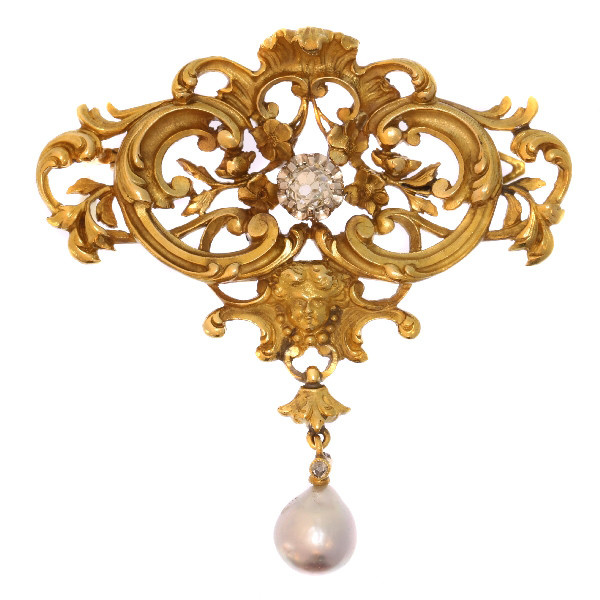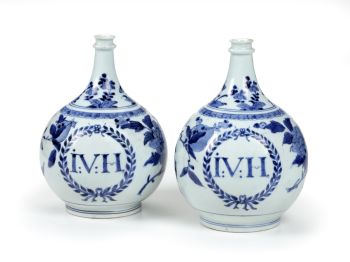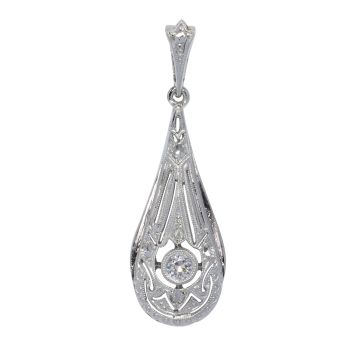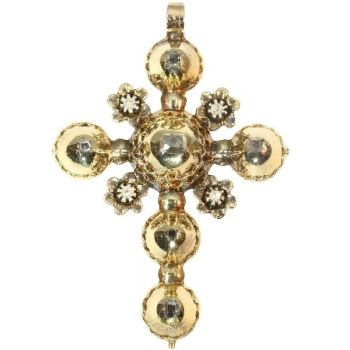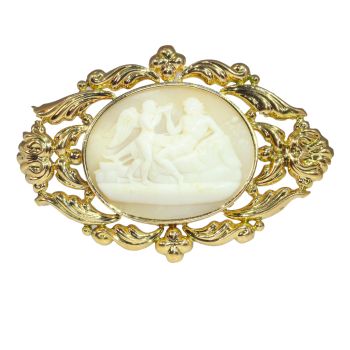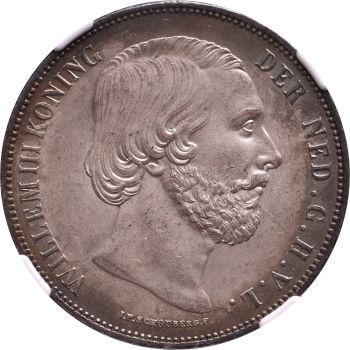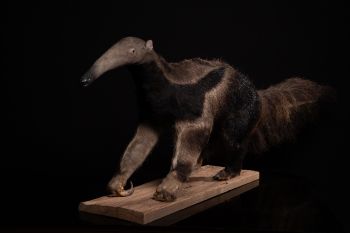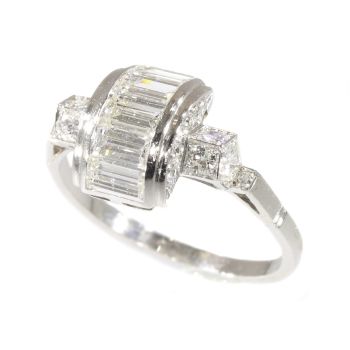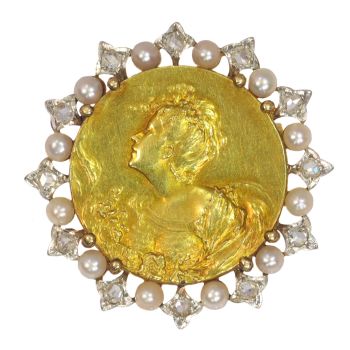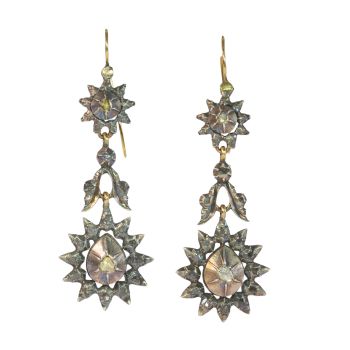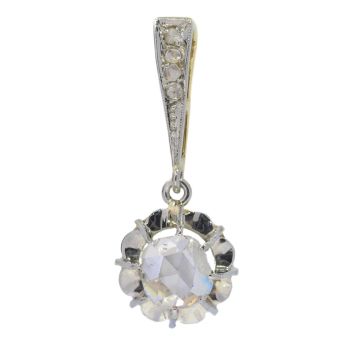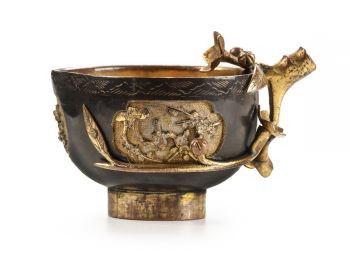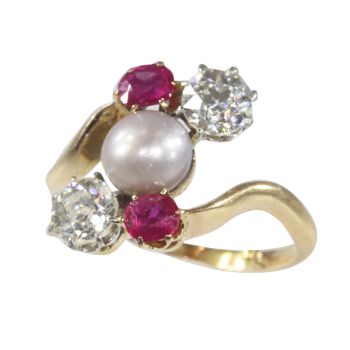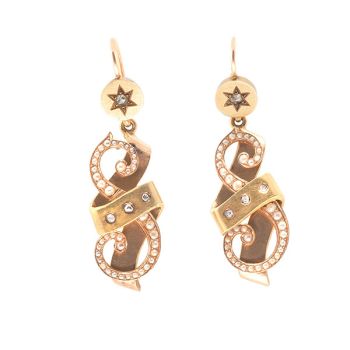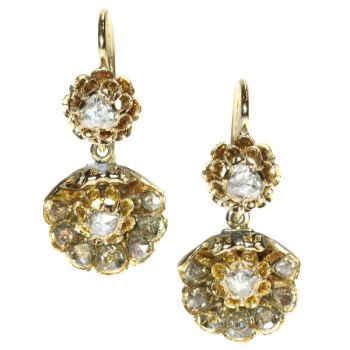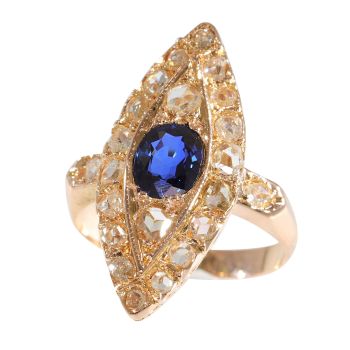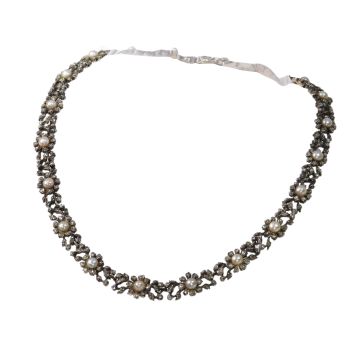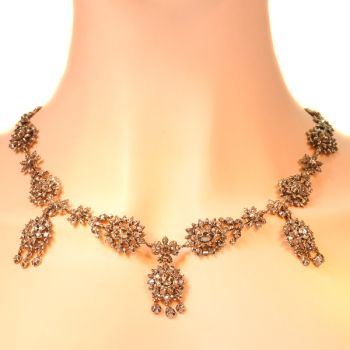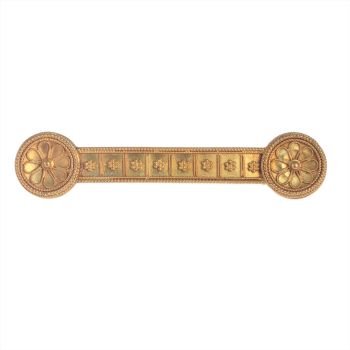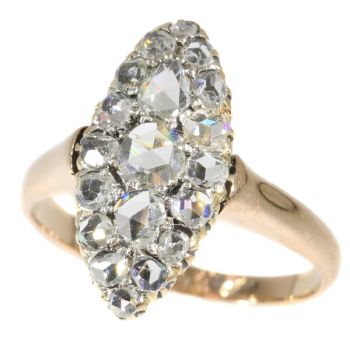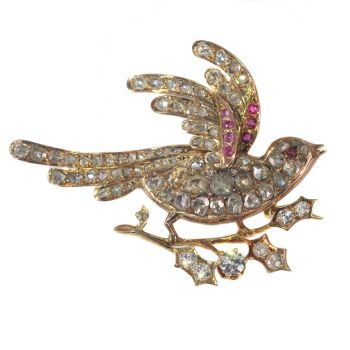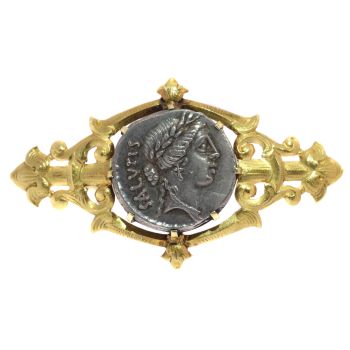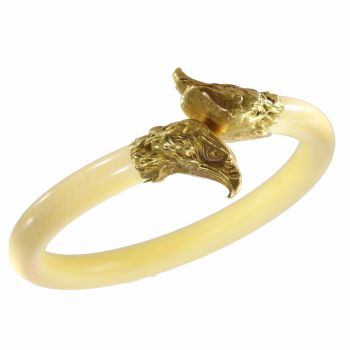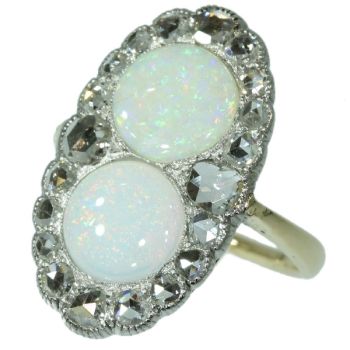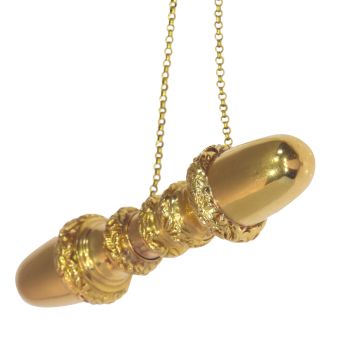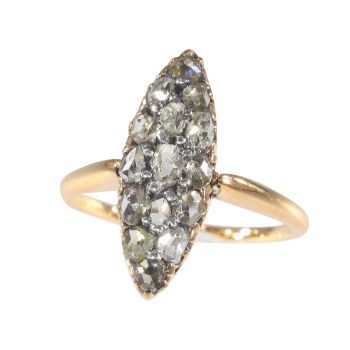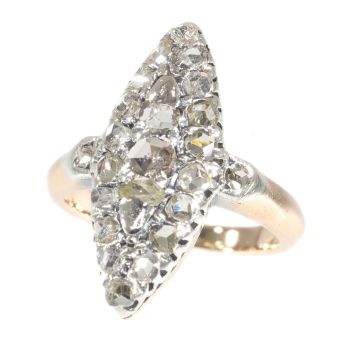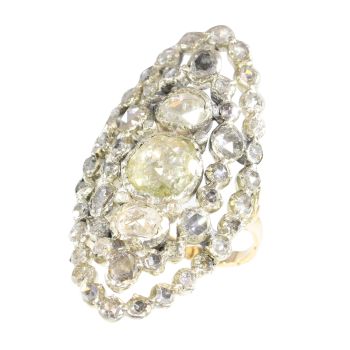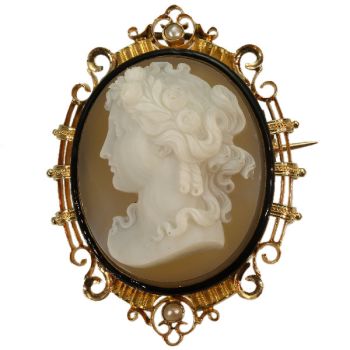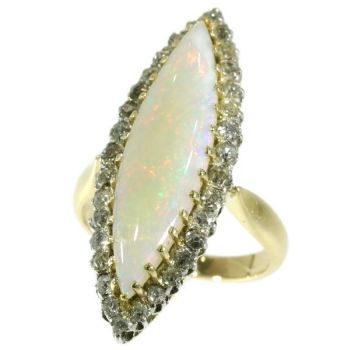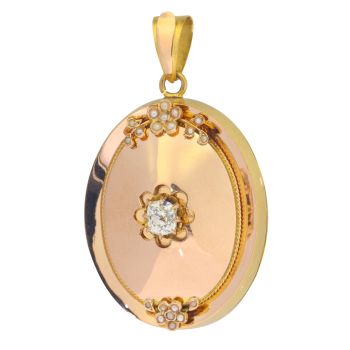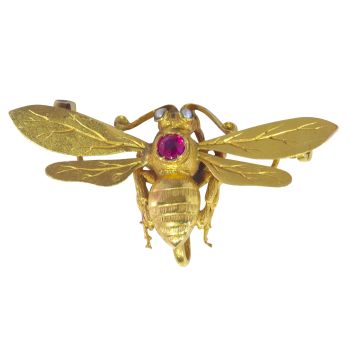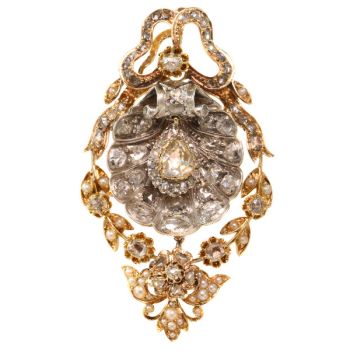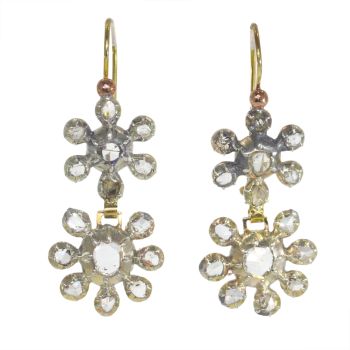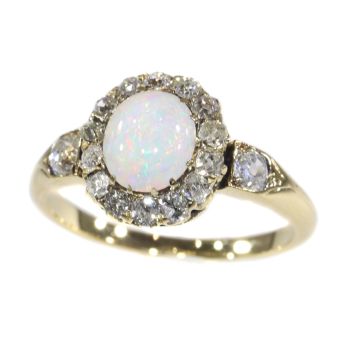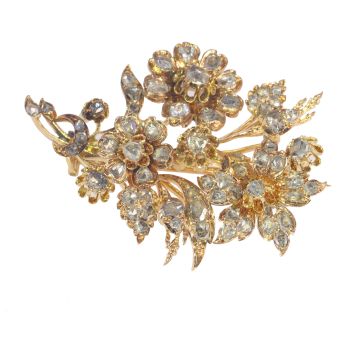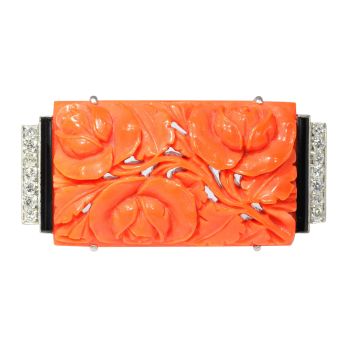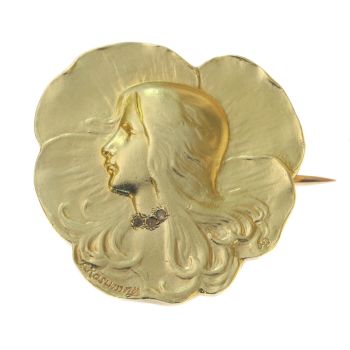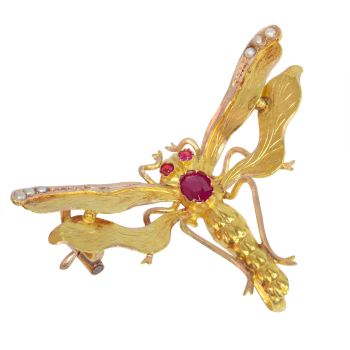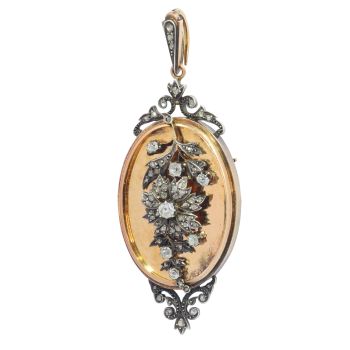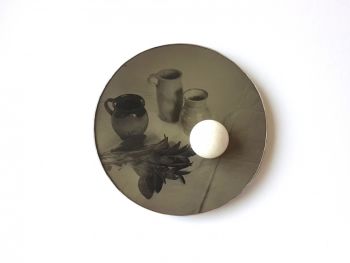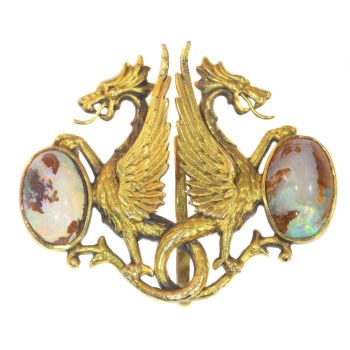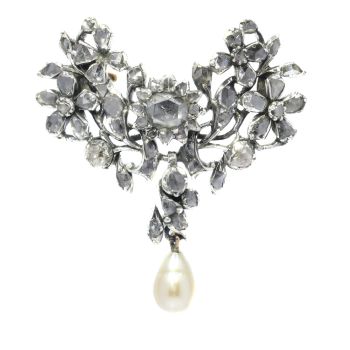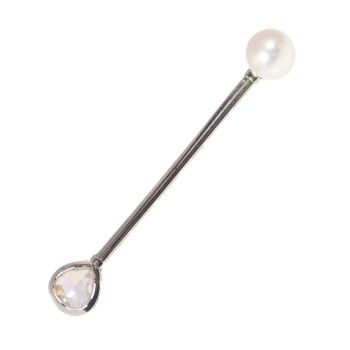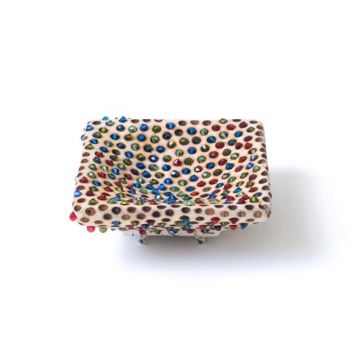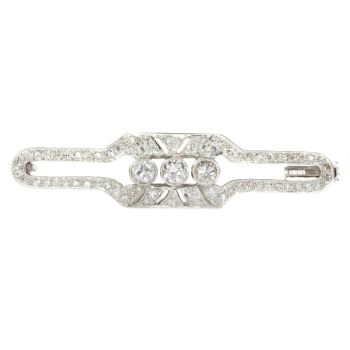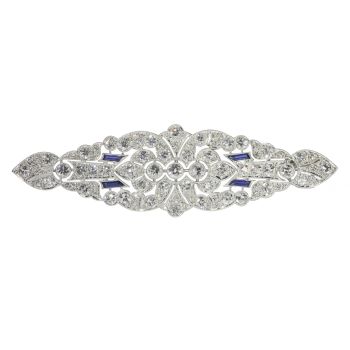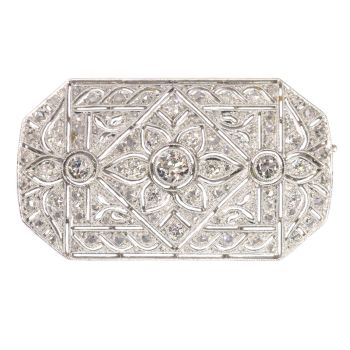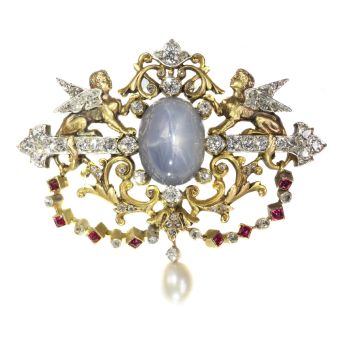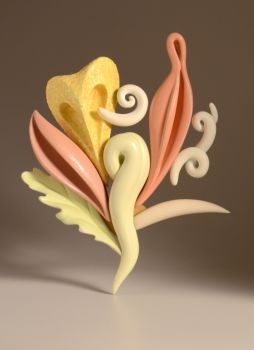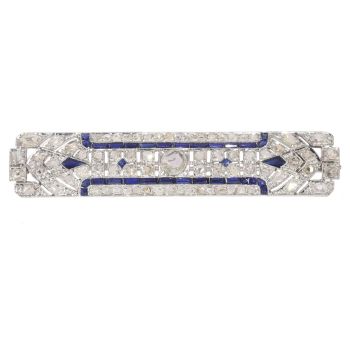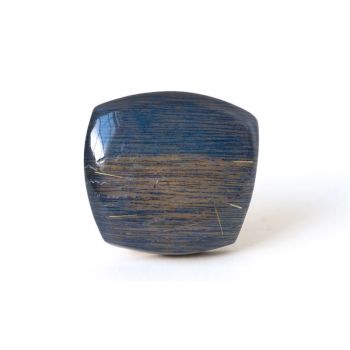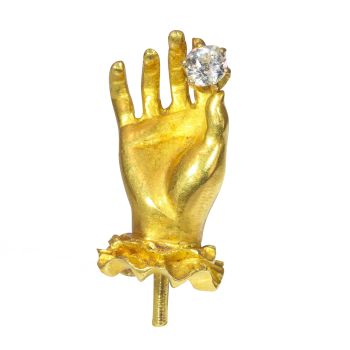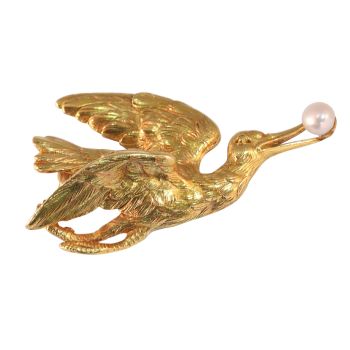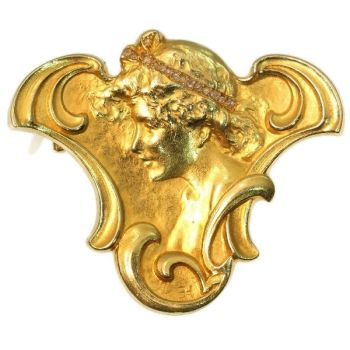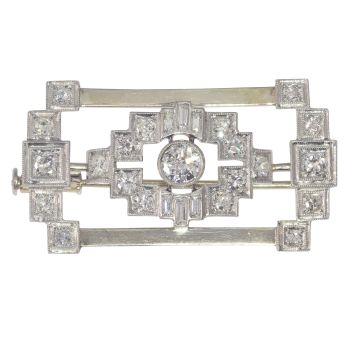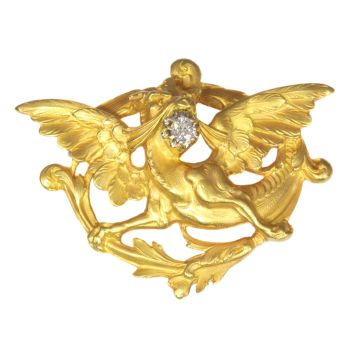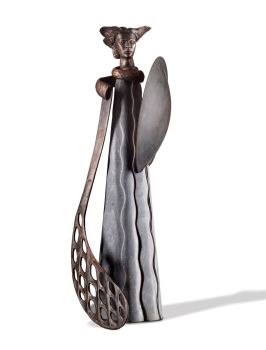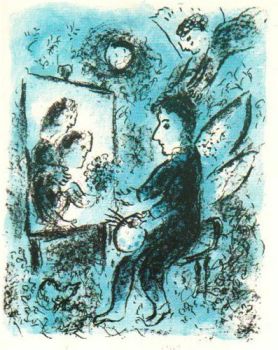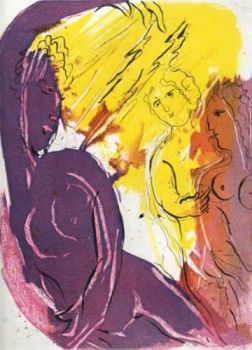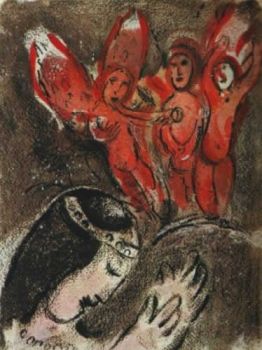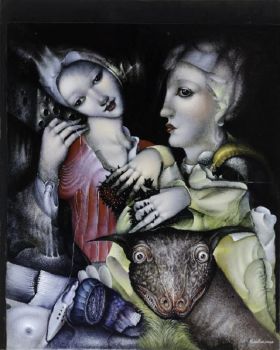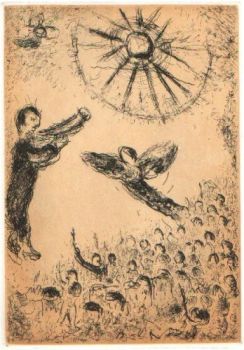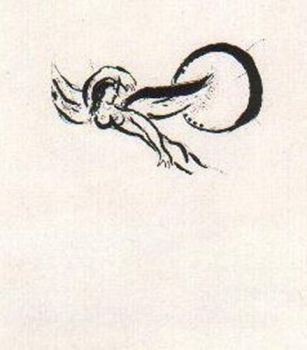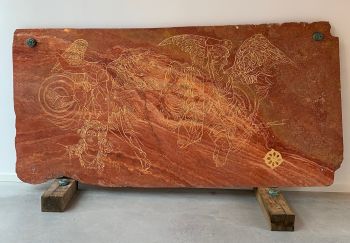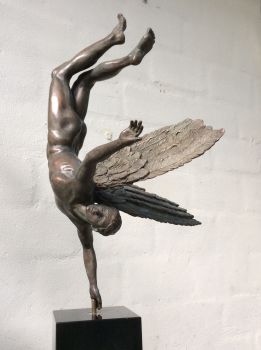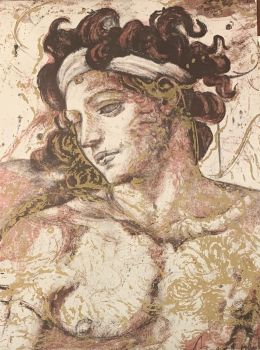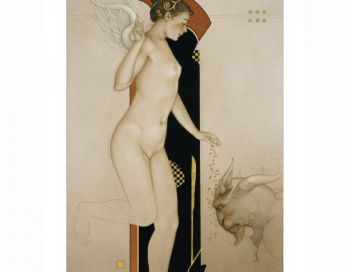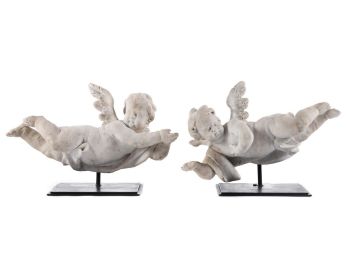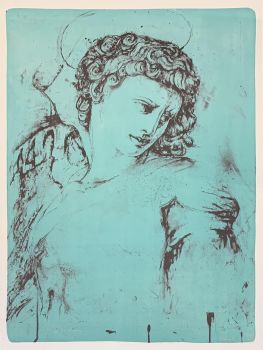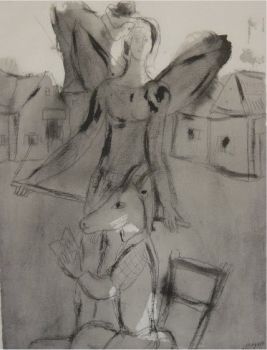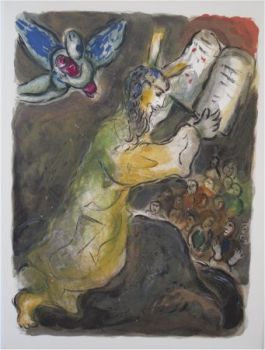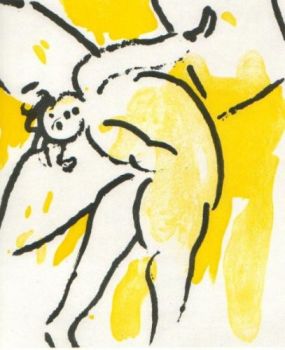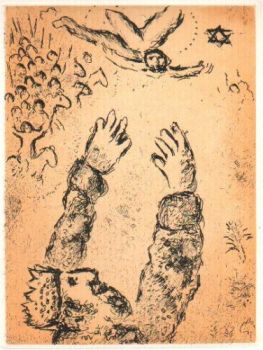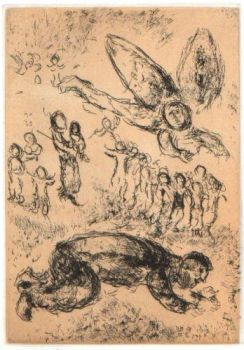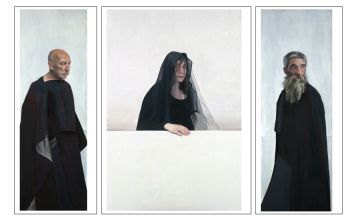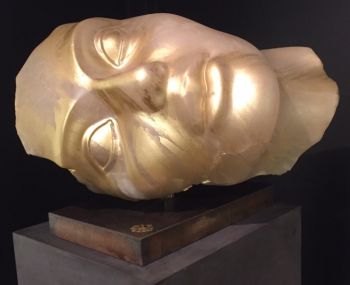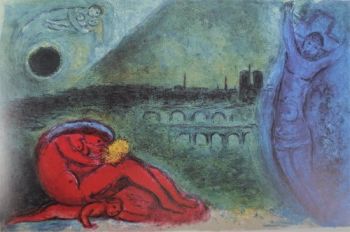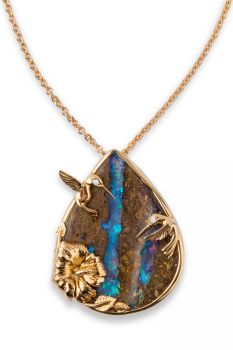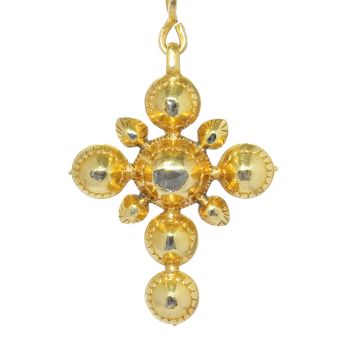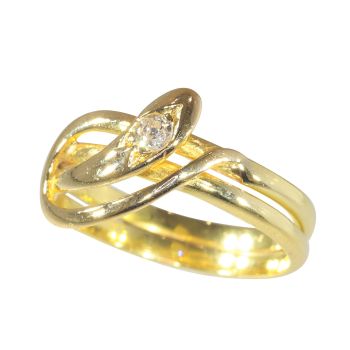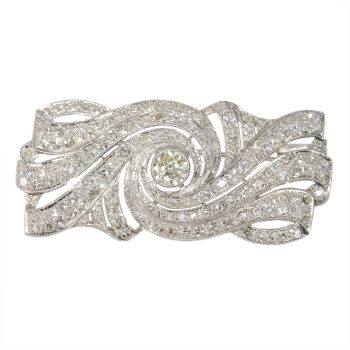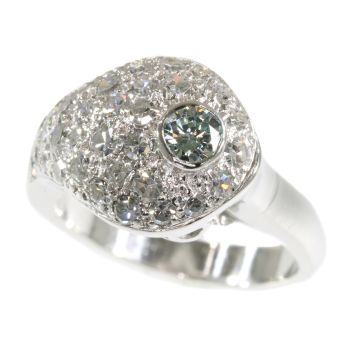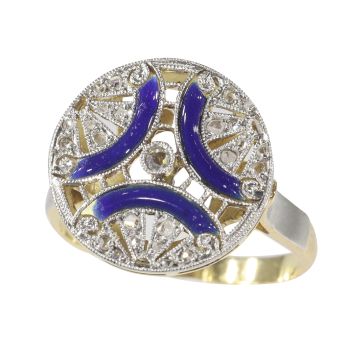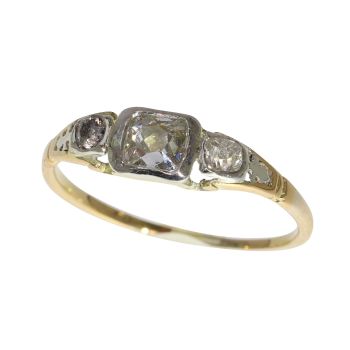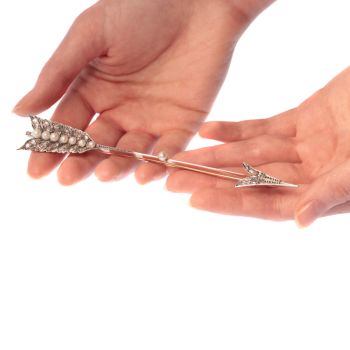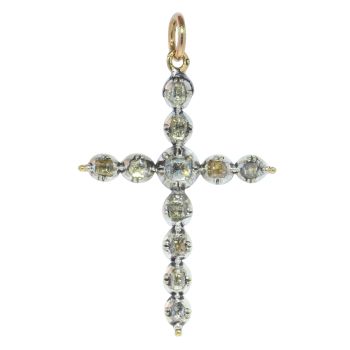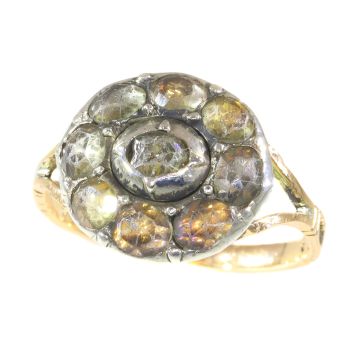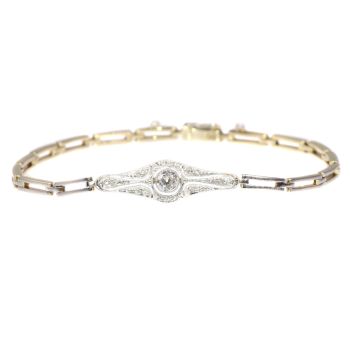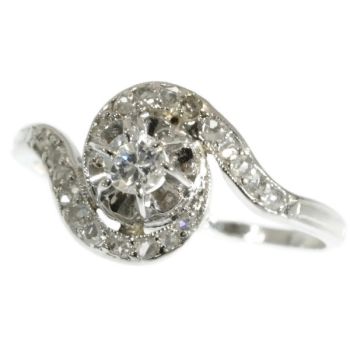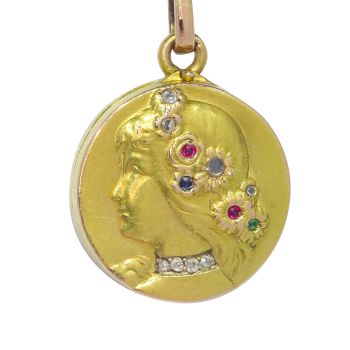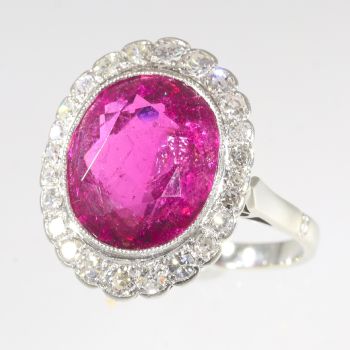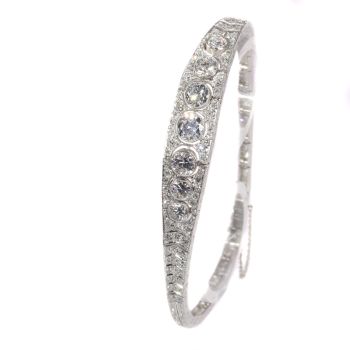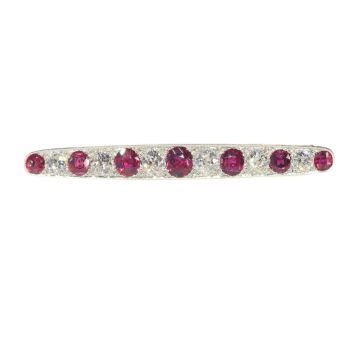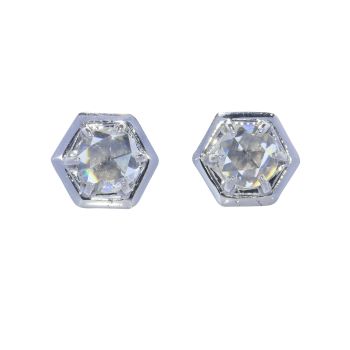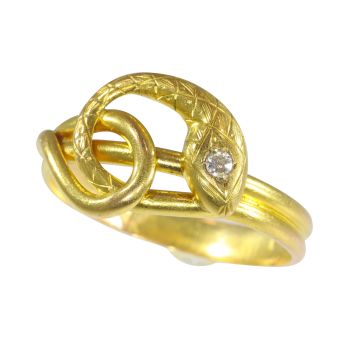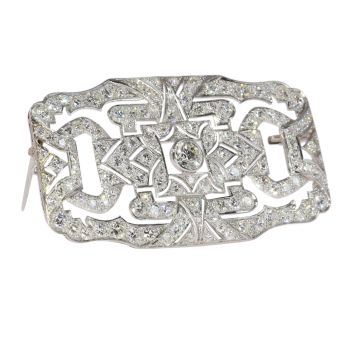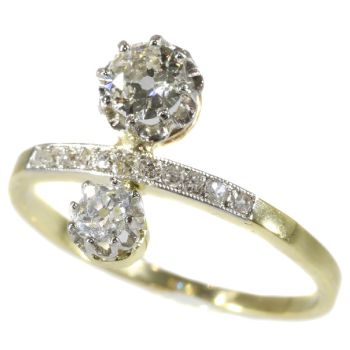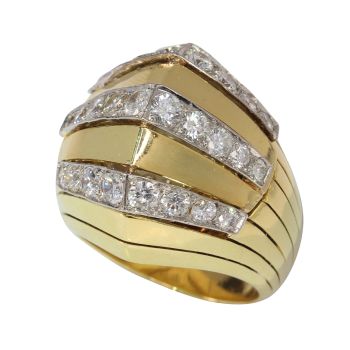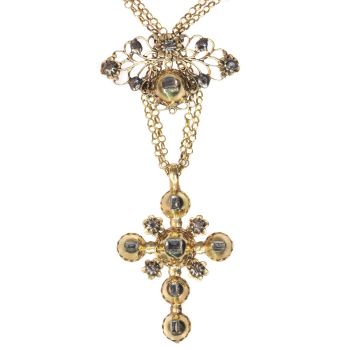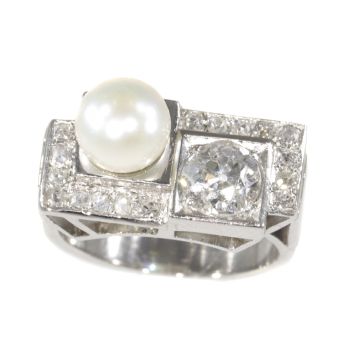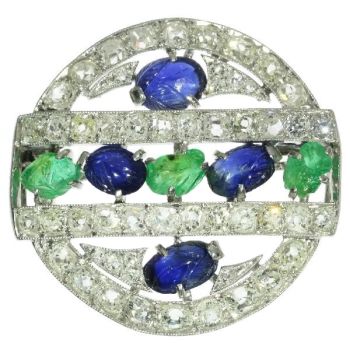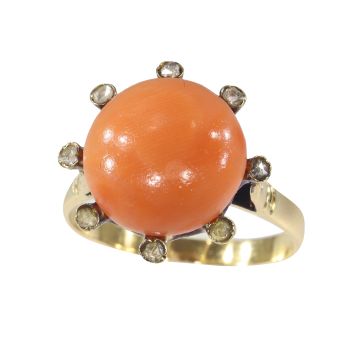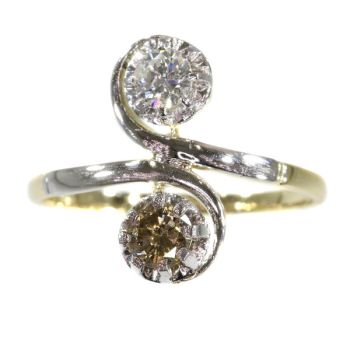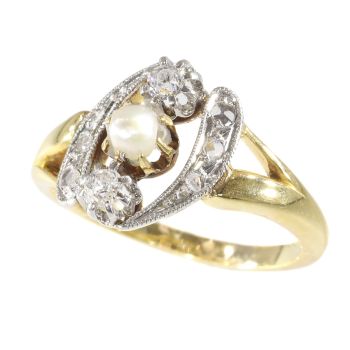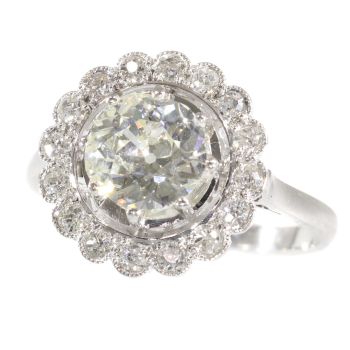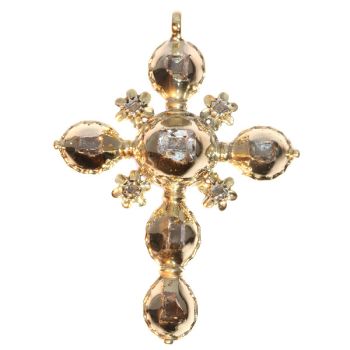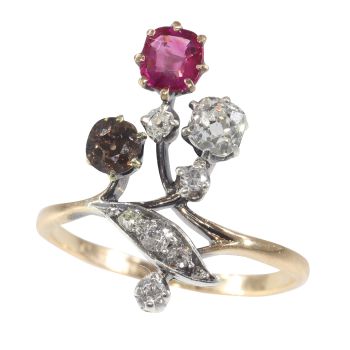Ästhetischer viktorianischer Goldbrosche-Anhänger mit Engelskopf und Diamant 1890
Unbekannter Künstler
Adin Fine Antique Jewellery
- Über KunstwerkLet this 18K yellow gold French Victorian brooch flood your senses with its harmonious neo-Rococo openwork interplay of rocailles and flowers.As two blossoming branches sprout from the top shell, a wave of curly C-shapes and swirly S-shapes ripples into a refined background flower frame arrangement.
In the meantime on the bottom of the brooch, an angel's head serves as the pillar for the tips of two C-elements across the draping leafs as they lift an old European diamond up to the piece its center.And lastly, the estuary of this abundant cascade of elegance narrows from the angel's collar into a dangling drop shaped saltwater pearl.
How can one not adore this eclecticism of the late Victorian period as it unites the land with the sea and the heavens - flowers with shells and angels - Belle Époque with neo-Rococo and neo-Classicism.
Antique jewelry object group: brooch/pendant
Condition: excellent condition
- (more info on our condition scale)
Country of origin: France
Style: Late-Victorian - Victorian decorative arts refers to the style of decorative arts during the Victorian era. The Victorian era is known for its eclectic revival and interpretation of historic styles and the introduction of cross-cultural influences from the middle east and Asia in furniture, fittings, and Interior decoration.
Victorian design is widely viewed as having indulged in a regrettable excess of ornament. The Arts and Crafts movement, the aesthetic movement, Anglo-Japanese style, and Art Nouveau style have their beginnings in the late Victorian era.
- See also: late-Victorianor more info on styles
Style specifics: The Late or Aesthetic Victorian Period - Experts divide the reign of Queen Victoria, also called The Victorian era (1837-1901) into three periods of about twenty years each; The Romantic Victorian Period (1837 - 1860), The Grand Victorian Period(1860 - 1880), and the Late or Aesthetic Victorian Period (1880 - 1901).
We consider this to be of The Late or Aesthetic Victorian Period.
Jewelry of this period is changing back from heavy to more smaller, romantic pieces with often whimsical motifs. Jewelers using diamonds and bright gemstones in elaborated and fine feminine pieces.
Period: ca. 1890
- (events & facts of this era, poetry of this era, fashion of this era)
Source of inspiration: Mother Nature
Material: 18K yellow gold
- (more info on precious metals)
Diamond(s): One old European cut diamond with an estimated weight of ± 0.40ct. (colour and clarity: M, vs/si).
One senaille. A senaille is a simplified rose cut diamond, a small diamond chip with perhaps a few polished facets. We do not have the weight of this diamond which is normal in our trade when it comes to senailles.
- All diamond weights, color grades and clarity are approximate since stones are not removed from their mounts to preserve the integrity of the setting.
Precious stones: Onesaltwater pearl
Birthstones: Diamond is the birthstone (or month stone) for April and pearl for June.
- (more info on birthstones)
Hallmarks: The French control mark for 18K gold representing an eagle's head that was in use in France from about 1838.
- (more info on hallmarks)
Dimensions: 4,55 cm (1,79 inch) x 4,75 cm (1,87 inch)
Weight: 16,70 gram (10,74 dwt)
Reference Nº: 18110-0067
Copyright photography: Adin, fine antique jewelry
- Über Künstler
Es kann vorkommen, dass ein Künstler oder Hersteller unbekannt ist.
Bei einigen Werken ist nicht zu bestimmen, von wem sie hergestellt wurden, oder sie wurden von (einer Gruppe von) Handwerkern hergestellt. Beispiele sind Statuen aus der Antike, Möbel, Spiegel oder Signaturen, die nicht klar oder lesbar sind, aber auch einige Werke sind überhaupt nicht signiert.
Außerdem finden Sie folgende Beschreibung:
•"Zugeschrieben …." Ihrer Meinung nach wohl zumindest teilweise ein Werk des Künstlers
•„Atelier von ….“ oder „Werkstatt von“ Ihrer Meinung nach eine Arbeit, die im Atelier oder in der Werkstatt des Künstlers, möglicherweise unter seiner Aufsicht, ausgeführt wurde
•„Kreis von ….“ Ihrer Meinung nach ein Werk aus der Zeit des Künstlers, das seinen Einfluss zeigt, eng mit dem Künstler verbunden, aber nicht unbedingt sein Schüler
•"Art von …." oder „Anhänger von ….“ Ihrer Meinung nach eine Arbeit, die im Stil des Künstlers ausgeführt wurde, aber nicht unbedingt von einem Schüler; kann zeitgenössisch oder fast zeitgenössisch sein
•„Art von ….“ Ihrer Meinung nach ein Werk im Stil des Künstlers, aber späteren Datums
•"Nach …." Ihrer Meinung nach eine Kopie (jegliches Datums) eines Werks des Künstlers
• „Unterzeichnet …“, „Datiert …“. oder „Beschriftet“ Ihrer Meinung nach wurde das Werk vom Künstler signiert/datiert/beschriftet. Das Hinzufügen eines Fragezeichens weist auf einen Zweifel hin
• „Mit Unterschrift …“, „Mit Datum …“, „Mit Aufschrift ….“ oder „Trägt Unterschrift/Datum/Beschriftung“ ihrer Meinung nach die Unterschrift/Datum/Beschriftung von jemand anderem als dem Künstler hinzugefügt wurde
Sind Sie daran interessiert, dieses Kunstwerk zu kaufen?
Artwork details
Related artworks
- 1 - 4 / 12
- 1 - 4 / 24
- 1 - 4 / 24
Unbekannter Künstler
Antike russische Holzikone: Erzengel Gabrielearly 17th
Preis auf AnfrageKunsthandel H.W.C. Dullaert Icons
Unbekannter Künstler
A pair of angels Antwerp, 17th century, Carrara marble17th century
Preis auf AnfrageFrederik Muller
1 - 4 / 24- 1 - 4 / 24
- 1 - 4 / 12

